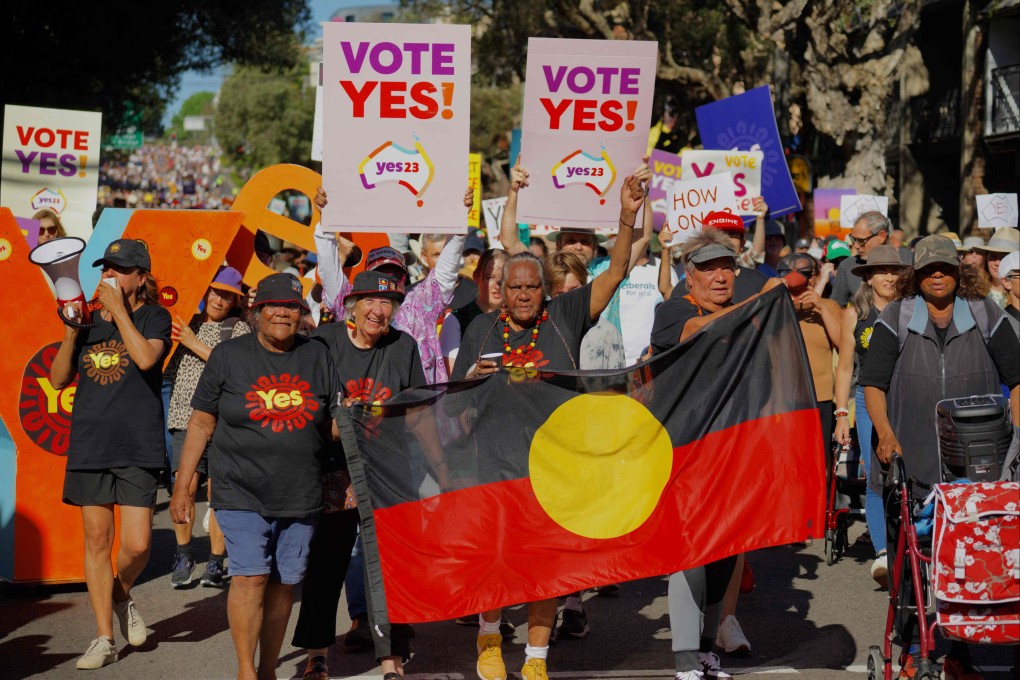Australian Aboriginal leader criticises Voice vote: ‘most indigenous Australians doing fine’
- Warren Mundine isn’t backing a referendum to enshrine a voice for indigenous Australians, as he says it perpetuates the notion they remain in victimhood
- He suggested better use of funding and policies in supporting struggling members of the community, instead of a constitutional change

The proposed constitutional change, to enshrine “a voice” for Aboriginal and Torres Strait Islander peoples, is losing momentum as opinion polls show more people likely to vote “no” on October 14, with Mundine and other Aboriginal leaders such as Jacinta Nampijinpa Price and Kerrynne Liddle among the biggest critics.
The referendum seeks to create a representative body to provide non-binding advice on the interests of indigenous peoples to Canberra, centuries after their populations suffered massacres and systemic segregation by colonists.

Speaking at Canberra’s national press club on Tuesday, Mundine, a former centre-left politician, rejected the “paternalistic” approach of the referendum that indigenous Australians needed to be helped as they were “destined for permanent disadvantage”.
“That’s exactly what people thought in the 1800s when they set up the protection regimes, when they set up segregation,” he said.
“The fact is, most indigenous Australians are doing fine. They go to school and work, run businesses and take care of their families, and they aren’t in prison. They don’t need a special indigenous voice,” he said. “It’s wrong to tell young people growing up in these families that are disadvantaged because they are indigenous.”
According to Mundine, while indigenous peoples had been able to prosper since being born into segregation, a referendum would put racial segregation back into the constitution.